Unusual noises produced from your pump means that the pump’s bearings are worn out. When bearings make a squeaking or clicking sound, it means they are worn and could soon break. Squeaky or overused bearings in the pump system should be replaced with new ones quickly to avoid damages to other pump components. Bearings wear on frequent use of the pump and hence need to be replaced with time.
To access the bearings, one will have to dismantle the pump casing. Without a water pump, the engine wouldn’t be able to circulate the water that’s needed to keep it cool. External belts and pulleys power the water pump to circulate the coolant over the entire cooling system continually. Overheating in an engine can be caused by a bad water pump.
Worn-out pump bearings
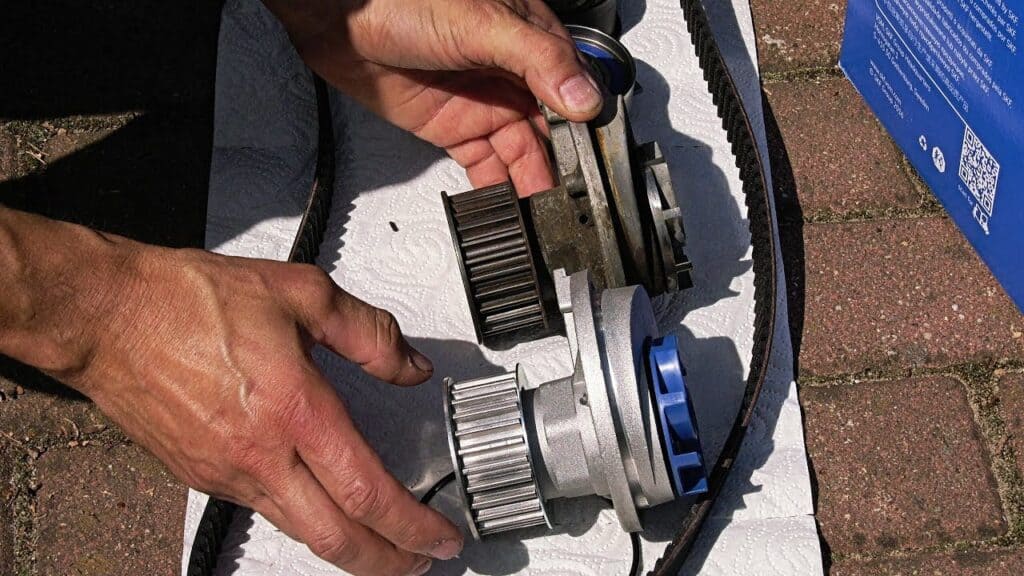
Bearings are reasonably precise machine components that are used in a broad range of applications. They are frequently consistent and reliable in even the most adverse conditions. Bearings have a significant operational life when operated normally, which can be expressed in terms of time or the overall number of cycles before failure.
However, a significant fraction of bearings does not live up to their average lifespan due to wear caused by continuous use. Bearing failures usually occur due to various conditions that could be prevented. In this case, a better understanding of a defect’s appearance may help one figure out what caused it.
Correcting the causes is paramount in that it prevents future failures and their associated costs. Operational stress, lubrication, environmental influence, mounting and the choice of bearing are some of the causal factors.
Lubrication
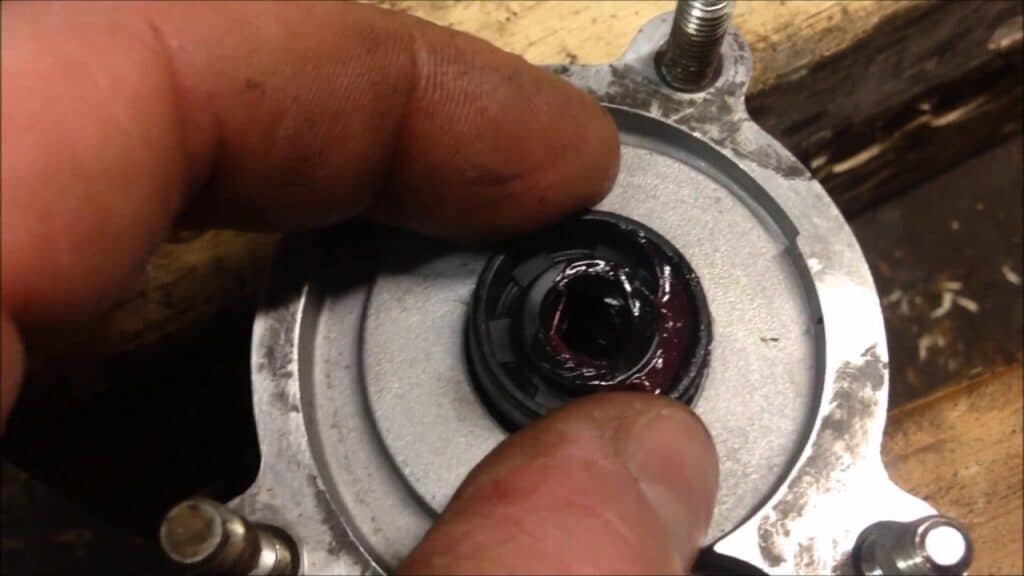
To prevent metal-to-metal contact, the lubricant is applied to the bearing, forming a thin film of oil on the contact surfaces. The lubricant;
- Lengthens the operational life of the machine
- Prevents abrasion and reduces wear and tear of the bearings
- Is used in the transportation of frictional heat
- Eliminates foreign materials and contamination that the ball bearings could have generated
- Prevents corrosion and rust
Lubrication is usually effective for high-speed or temperature activities. Lubrication failures come from using the incorrect lubricant type, mixing lubricants, insufficient or excessive use of the lubricant, or using contaminated lubricant.
Influence of the Environment
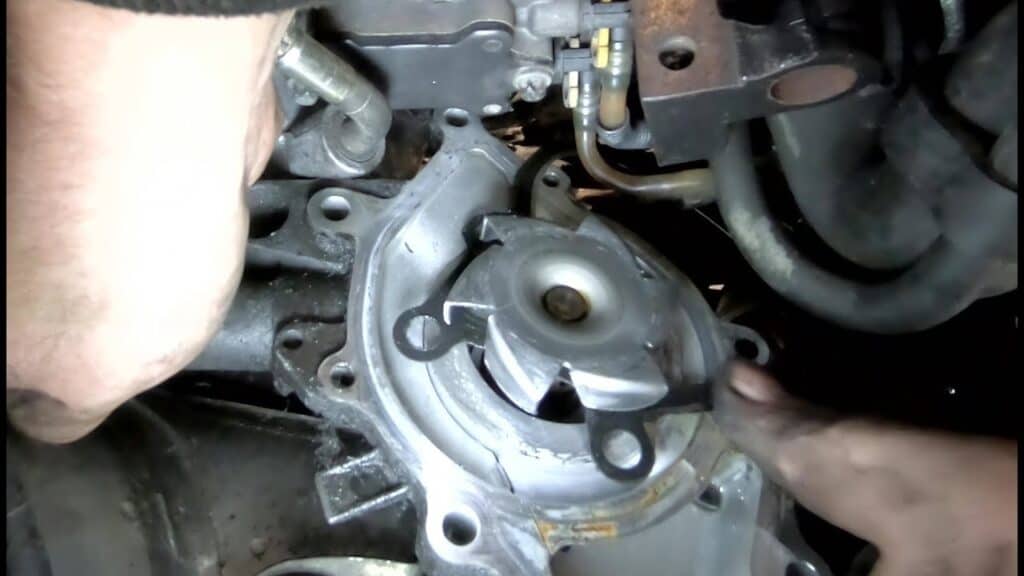
Failure to consider your machine’s operating environment will result in various failures in the entire system. There are a lot of potential problems, but the main ones are:
ü Dust particles can contaminate the pump’s bearing. Appropriate sealing techniques should always be used with extreme caution.
ü Water or a different aggressive media -Proper sealing is crucial once more to prevent this. It is recommendable to use high-quality seals such as labyrinth designed seals.
ü Heat generated externally- The bearing life is influenced by the ambient operating temperature, which dictates inbuilt radial clearance, high thermal lubricants, irregular or consistent operation, and various other factors.
Choice of the bearing and operational stress
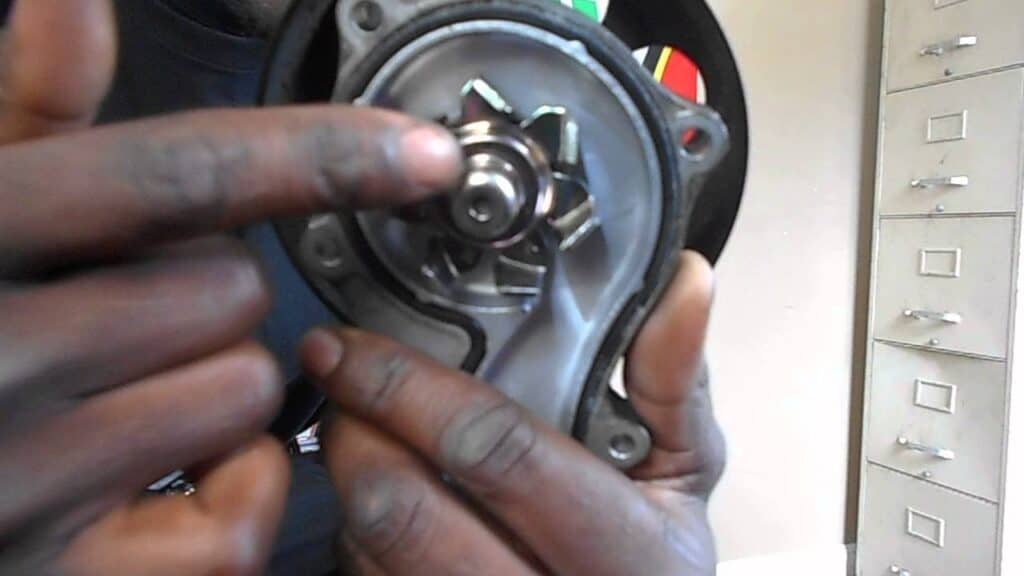
It is rare to come across an improperly designed bearing for an appliance. However, certain aspects within the broader application may alter. Excess loads result in overloading and untimely fatigue, while on lower loads, skidding of the rolling elements may occur. Each situation will result in early failures that manifest themselves through higher temperatures or abnormal noises.
Operational constraints in your machine can also affect bearing life. Thus, it is essential to eliminate vibrations from the related application since they can result in inconsistent operation and strange noises.
Causes of water pump noises
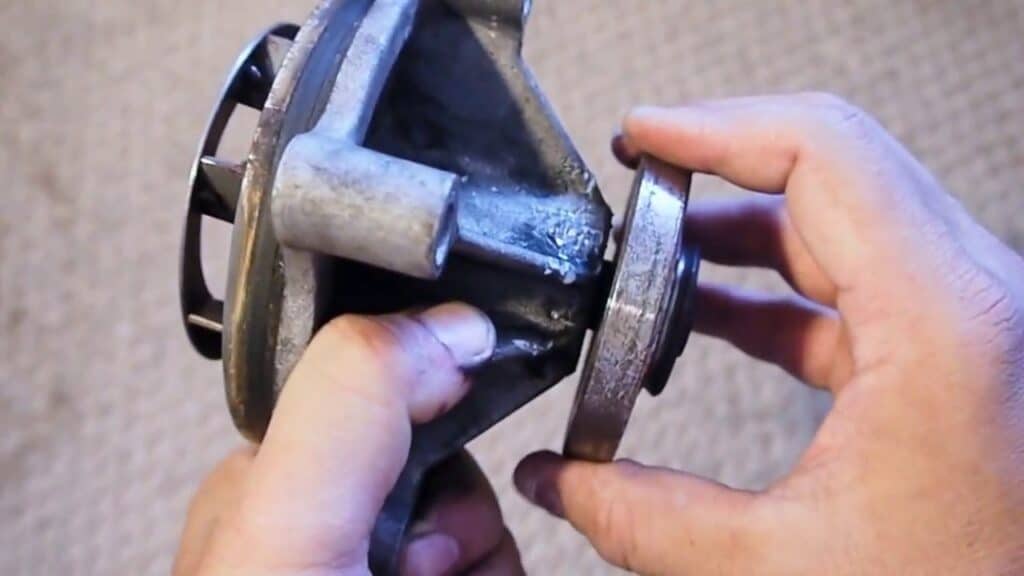
Water pumps are magnificent pieces of engineering in various fields. They are capable of managing gardens, pools or water supply in your home. They do, however, produce noises that create an uneasy feeling to the people around and neighbours. The noises come as a result of either contaminated coolant, worn-out components or system failures.
There are various primary causes of noises in water pumps, depending on the sound made. Below are some of the causes;
- Ticking or squeaking noises
A water pump that makes these kinds of noises may indicate that the bearing is worn out. The shaft does not rotate smoothly, making the worn-out bearings produce squeaking and ticking noises. The bearings can, however, be replaced, though not in all water pump types.
Having the noisy pump replaced with a new one that does not make noises can help eliminate the noises. This option is, however, costly. It is essential to promptly substitute the bearings to avoid further damages to other components of the pump.
- Grinding sounds
A typical water pump will usually make a whirring or grinding noise when its pulley is defective. A swaying or cracked pulley will produce such noises as it rotates. Excessive heat in the engine and damages on the pulley and tattered belt edges indicate a defective pulley. One should cross-check the pump’s belts as loose belts within the pump system also result in such noises.
- Rattling sounds from the pump
Water pump rattling is a sign of early stage-bearing damage. If the pump is placed in a cold place, such noises could be produced when it starts up again. It is thus essential to keep the pump in a warmer place to keep it in working order.
How to fix a noisy water pump
a) Maintenance of Water Pumps
Maintaining your water pump regularly will assist in resolving noise issues. Generally, irritating noises from your pump system indicates an issue with the pump. Proper maintenance improves the water pump’s effectiveness.
b) Select the appropriate pump
When shopping for the best water pump, opt for the quietest model available, even if it is more costly. The additional benefit of such a pump is that you will save money in the long run on soundproofing it.
c) Construct a soundproof Box
This is a simple and cost effective method to soundproof your water pump. Soundproofed boxes are used to eradicate airborne noises. One can make one out of fibreglass, which is a much better soundproofing material than a regular card.
d) Insulation
Pump noises can be reduced by insulation, which limits sound transmission. You’ll need a material that absorbs the noises produced. However, you must select the appropriate material to reduce the noise effectively.
Conclusion
Eliminating noise from water pumps does not have to be tedious. Simple soundproofing techniques can maintain the machine in good operational conditions without producing noises.
If left unresolved, the noises can interfere with your ability to concentrate on tasks or even make you have sleepless nights. However, the noise can be effectively reduced through insulation, component replacement, and maintenance.
